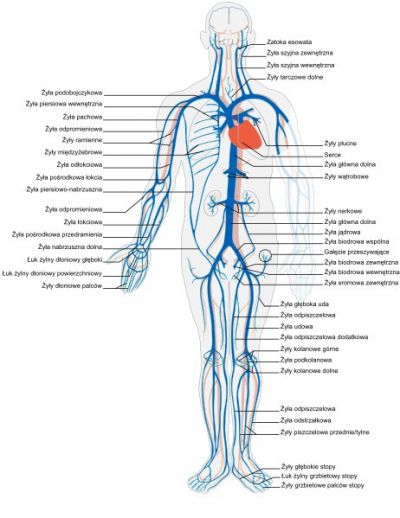Metabolism fuels angiogenesis

Venous system, fot. public domain
Our bodies are capable of forming new blood vessels, a process known as angiogenesis. Studying the molecular triggers of this phenomenon could lead to the design of novel therapeutic interventions.
The growth of new blood vessels occurs during embryogenesis, wound
healing and inflammation but also under pathological situations such as
cancer or atherosclerosis.
Scientists on the EU-funded EC METABOLISM (Understanding the metabolism of endothelial cells underlying physiological and pathological angiogenesis) study aimed to understand the metabolic alterations in endothelial cells undergoing physiological or pathological angiogenesis. For this purpose, they studied the basal metabolism of endothelial cells of arterial, venous and lymphatic origin.
Metabolism is the breakdown of nutrients to produce energy and building blocks necessary for cellular function and growth. Endothelial cells line all the vessels in the body, which provide nutrients and oxygen to the tissues.
EC METABOLISM scientists found that lymphatic endothelial cells have higher fatty acid oxidation flux compared to venous or arterial cells. Considering the higher lipid content of lymph and the role of the lymphatics in regulating reverse cholesterol transport in atherosclerosis, this finding is of high medical relevance.
To further elucidate the role of fatty acid oxidation in lymphatic vessel formation, the consortium used transgenic zebrafish and a mouse model of lymphatic development. They discovered that the transcription factor that drives lymphatic development and lymphatic endothelial cell differentiation is also responsible for elevated fatty acid oxidation. Mechanistic insight into the process indicated that fatty acid metabolism regulates epigenetic modifications and promotes the transcription of lymphatic genes.
The EC METABOLISM observations provided concrete evidence on the link of endothelial cell phenotype, metabolism and environment. Most importantly they paved the way for determining the therapeutic potential of inhibition of fatty acid oxidation in pathological lymphangiogenesis.
published: 2015-08-04